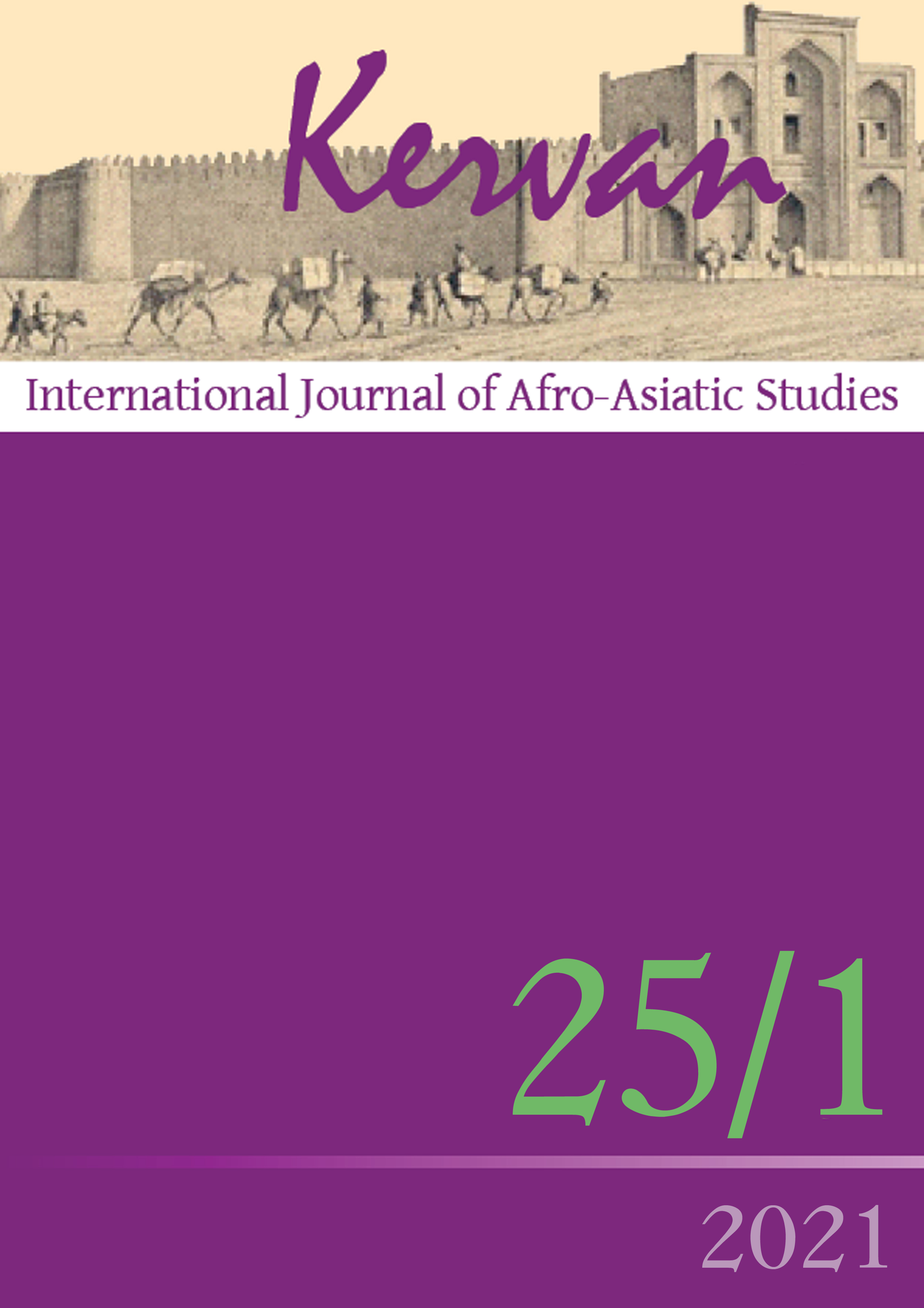Ritual practices, hypnotic suggestions and trance-like states in Swahili written literature
Abstract
This article suggests an interdisciplinary analysis of Swahili written literature from Tanzania through the principles of hypnosis, such as trance-like states, post-hypnotic suggestions, therapeutic metaphors and negative autohypnosis, produced during the performance of traditional ritual practices such as initiation rituals and witchcraft acts. The objective is to illustrate how the hypnotic trance, induced by ritual performances, can be interpreted as a channel to convey Afrocentric knowledge and wisdom. The selected fictional works explored are the following two novels and four plays: Mwendo (Lema 2004), Mirathi ya Hatari (Mung’ong’o 2016), Embe Dodo (Makukula 2015), Kija: Chungu cha Mwanamwari wa Giningi (Kitogo 2009), Kivuli Kinaishi (Mohamed 1990) and Ngoma ya Ng’wanamalundi (Mbogo 2008).


 The articles that have appeared on Kervan since 2016 are rated as Class A in the system of National Scientific Qualification (ASN, disciplines 10/N1 and 10/N3).
The articles that have appeared on Kervan since 2016 are rated as Class A in the system of National Scientific Qualification (ASN, disciplines 10/N1 and 10/N3). The journal has been approved for inclusion in DOAJ. The DOAJ listing of the journal is available at
The journal has been approved for inclusion in DOAJ. The DOAJ listing of the journal is available at  The journal has been approved for inclusion in ERIH PLUS. The ERIH PLUS listing of the journal is available at
The journal has been approved for inclusion in ERIH PLUS. The ERIH PLUS listing of the journal is available at  Kervan was just accepted for indexing in SCOPUS. This important milestone ensures that articles published in Kervan are easily found when searching for library, archives and Information science and it enables Kervan authors to keep track of how often their article has been cited by others.
Kervan was just accepted for indexing in SCOPUS. This important milestone ensures that articles published in Kervan are easily found when searching for library, archives and Information science and it enables Kervan authors to keep track of how often their article has been cited by others.
